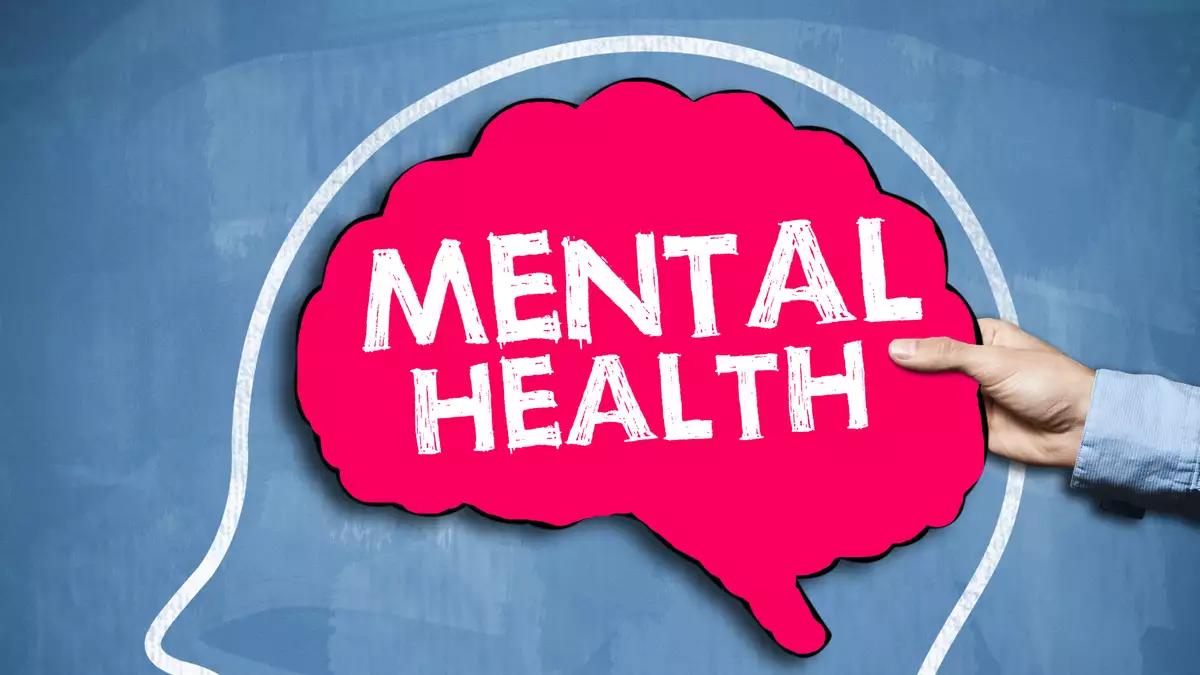Across Texas, thousands of individuals seek help each year for conditions such as anxiety, depression, bipolar disorder, and post-traumatic stress disorder. Mental health in Texas is not just a clinical concern it’s a community challenge that affects families, workplaces, and the overall well-being of society. With rising awareness, more people are now turning toward professional care to restore balance in their lives.
The good news is that Texas is home to highly qualified psychiatrists, psychologists, and therapists who provide effective treatment options.
Why Access to Care Matters
Timely access to mental health services can mean the difference between ongoing struggles and a path to recovery. According to data from the Texas Health and Human Services Commission, millions of residents live in areas considered mental health professional shortage zones.
Despite these challenges, major cities such as Dallas, Houston, Austin, and San Antonio have built strong networks of hospitals, clinics, and private practices to support patients. Seeking treatment early reduces complications, improves recovery outcomes, and helps patients return to normal routines faster.
Common Conditions Treated in Texas Clinics
Specialists across the state provide diagnosis and treatment for a wide range of conditions:
- Depression and mood disorders
- Anxiety and panic disorders
- Post-traumatic stress disorder (PTSD)
- Obsessive-compulsive disorder (OCD)
- Schizophrenia and psychotic disorders
- ADHD in children and adults
- Substance use and co-occurring disorders
By addressing these issues with evidence-based care, professionals improve not only the patient’s quality of life but also their relationships, productivity, and physical health.
Finding the Right Specialist
Choosing the right specialist is one of the most important steps in your journey. Patients often ask whether they should see a psychiatrist, psychologist, or licensed counselor. Here’s a quick breakdown:
- Psychiatrists: Medical doctors who can diagnose, prescribe medication, and offer therapy.
- Psychologists: Specialize in therapy, psychological testing, and behavioral treatment.
- Licensed Counselors / Therapists: Provide talk therapy, coping strategies, and ongoing support.
For complex conditions such as schizophrenia, bipolar disorder, or severe depression, a psychiatrist may be the best fit. For mild to moderate issues like stress, relationship problems, or adjustment difficulties, a therapist or psychologist might be more appropriate.
Top Mental Health Hospitals in Texas
Texas has several hospitals nationally recognized for psychiatric and behavioral health services:
UT Southwestern Medical Center (Dallas)
A nationally recognized leader in psychiatry and neuroscience, UT Southwestern provides advanced research-based treatments for complex mental health conditions. Patients benefit from both inpatient and outpatient care options.
Menninger Clinic (Houston)
Consistently ranked among the top psychiatric hospitals in the United States, Menninger Clinic offers residential programs, outpatient therapy, and specialized treatment for mood, anxiety, and personality disorders.
Baylor Scott & White Mental Health Services (Multiple Locations)
With facilities across Texas, Baylor Scott & White delivers comprehensive mental health care, including crisis intervention, inpatient stabilization, and ongoing outpatient support.
Ascension Seton Behavioral Health (Austin)
This center provides a wide range of behavioral health services, from emergency psychiatric treatment to therapy and medication management, serving both adults and children in Central Texas.
University Health Behavioral Health Services (San Antonio)
University Health offers specialized care for adults and children, including inpatient, outpatient, and community-based programs designed to support long-term recovery.
These centers are supported by teams of psychiatrists, psychologists, therapists, and social workers working together to provide integrated care.
Leading Psychiatrists and Specialists in Texas
Texas is home to many highly regarded professionals in psychiatry and psychology. While there are hundreds of qualified experts, a few names often recognized for their contributions include:
- Dr. Madhukar Trivedi (Dallas, UT Southwestern) – Internationally known for research on depression treatments.
- Dr. Vineeth John (Houston, UTHealth) – Specializes in geriatric psychiatry and teaching the next generation of physicians.
- Dr. Anisha Abraham (Austin area) – Focuses on adolescent and young adult psychiatry.
- Dr. John Burruss (Menninger Clinic, Houston) – CEO and practicing psychiatrist with expertise in mood and personality disorders.
Patients should always verify board certification through the American Board of Psychiatry and Neurology (ABPN) and ensure that the doctor accepts their insurance or offers accessible payment options.
Treatment Approaches in Mental Health Care
Modern psychiatry and psychology in Texas combine traditional therapy with advanced treatment methods. Depending on the diagnosis, care may include:
Medication Management
Psychiatrists may prescribe antidepressants, mood stabilizers, or antipsychotics to help regulate brain chemistry and reduce symptoms, often combined with therapy for better results.
Cognitive Behavioral Therapy (CBT)
This structured talk therapy helps patients identify and reframe negative thought patterns, making it highly effective for depression, anxiety, and everyday stress management.
Dialectical Behavioral Therapy (DBT)
Developed for emotional regulation, DBT teaches coping skills, mindfulness, and interpersonal effectiveness, often used for borderline personality disorder and self-harming behaviors.
Transcranial Magnetic Stimulation (TMS)
A safe, non-invasive procedure that uses magnetic pulses to stimulate brain regions linked to mood, offering new hope for patients with treatment-resistant depression.
Ketamine & Esketamine (Spravato®)
FDA-approved therapies that act quickly to relieve symptoms of major depressive disorder, especially in patients who have not responded to traditional antidepressants.
Group Therapy and Support Groups
These sessions create a safe environment where patients share experiences, build coping strategies, and find community support alongside professional guidance.
Many clinics also integrate lifestyle medicine, mindfulness training, and family therapy, reflecting the holistic needs of patients.
Regional Access: Care Across Texas
- Dallas–Fort Worth Metroplex: Offers some of the state’s largest hospital systems, including UT Southwestern and private practices across Plano, Richardson, and Arlington.
- Houston: The Texas Medical Center houses world-class psychiatric research and treatment facilities.
- Austin: Known for community-based services and a growing number of outpatient mental health centers.
- San Antonio: Strong in both military and civilian behavioral health, with University Health and VA Medical services.
- Rural Texas: Telepsychiatry is expanding, giving patients access to specialists without long travel times.
This broad network ensures that mental health in Texas is not limited to major cities but increasingly available in smaller communities as well.
Insurance and Cost Considerations
Many Texans worry about the cost of psychiatric care. Fortunately, most major hospitals and clinics accept insurance plans, Medicaid, or Medicare. Low-income families may qualify for state assistance programs. For those paying out of pocket, community health centers often provide sliding-scale fees. Always confirm with the provider’s office before scheduling an appointment.
Tips for Patients Seeking Mental Health Care
When searching for the right specialist in Texas, keep the following in mind:
- Verify board certification and licenses.
- Check hospital affiliations and experience with your condition.
- Read patient reviews on platforms such as Healthgrades or Zocdoc.
- Ask about wait times and availability of new patient appointments.
- Consider telehealth if transportation is a challenge.
These steps help ensure that your first visit leads to a meaningful treatment plan.
Conclusion
Accessing quality mental health care is one of the most important decisions a person can make. At Health Nation Care, we highlight the best options across Texas, including top hospitals, board-certified psychiatrists, and innovative treatments. Mental health services in Texas continue to expand in both reach and quality.
Whether you live in Dallas, Houston, Austin, or a rural area, trusted resources are available to support recovery and long-term well-being. The first step is reaching out to the right specialist who understands your unique needs and Health Nation Care is here to guide you.
FAQs on Mental Health in Texas
Q1: How do I know if I need professional help?
If your emotional struggles are interfering with work, relationships, or daily activities, it’s time to seek professional care.
Q2: Can I access mental health in Texas through telemedicine?
Yes. Telepsychiatry and virtual therapy are widely available and covered by many insurance providers.
Q3: What if I don’t have insurance?
Community health centers, nonprofit clinics, and state programs often provide affordable or free services for uninsured patients.
Q4: Are there specialists for children and adolescents?
Yes, many psychiatrists and psychologists in Texas focus specifically on pediatric and adolescent mental health.
Q5: How do I find emergency help?
Call 911 for immediate danger, or dial 988, the national Suicide & Crisis Lifeline, for urgent support.











Comments are closed